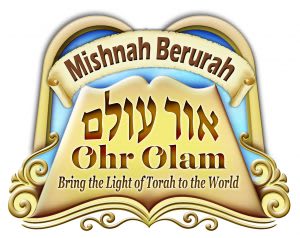Kabbolas Shabbos for Individuals

Question: If a community davens and accepts Shabbos well before sunset, is each individual bound by their acceptance of an earlier onset of Shabbos?
Discussion: It depends on the exact situation: In a small community, e.g., a yeshiva, camp, hotel or bungalow colony that has only one congregation which ushers Shabbos in early, all members of the community are obligated to begin Shabbos at that time.[i] But in communities that support several congregations, some of which accept Shabbos early and others which do so on time, each household may join the congregation of its choice – with the following provisions:
- An individual must accept Shabbos at the time “his” congregation does. “His” congregation means the shul where he is planning to daven this Friday night.[ii] An individual may change from week to week, sometimes beginning Shabbos early and sometimes on time.[iii]
- Although an individual must refrain from performing melachah once the community or his congregation’s Shabbos begins, he may still privately[iv] daven the Friday Minchah.[v]
- A minyan – even a permanent one – which meets in a private home is not considered a separate congregation. Therefore, a private minyan may not accept Shabbos on time if the rest of the community accepts Shabbos early.[vi]
- Many Poskim maintain that if a husband accepts Shabbos early, his wife and children must do so as well.[vii] Others maintain that a wife and children may accept Shabbos whenever they wish regardless of when the husband or father began the Shabbos.[viii]
- Poskim debate the status of a shul in which the majority of the congregants wants to accept the Shabbos early and a minority wants to make a second minyan, in the same shul, which will begin Shabbos on time. While some authorities do not allow for such an arrangement,[ix] the custom follows the lenient view.[x]
[i] Shulchan Aruch 263:12-13. See Igros Moshe, Orach Chaim III, 38, who remains undecided as to whether or not this ruling applies nowadays, when accepting early Shabbos is made for the sake of convenience and not for the sake of extending the sanctity of Shabbos. But other Poskim, including Rav S.Z. Auerbach (addendum to Shulchan Shlomo, Shabbos I, pg. 22), Rav Y.S. Elyashiv (cited in Shevus Yitzchak, Dinei Ner Shabbos, pg. 234) and Shevet HaLevi, VII, 35, reject this distinction.
[ii] See Sha’ar Hatziyun 551:56.
[iii] Shulchan Aruch Harav 263:19; Aruch Hashulchan 263:28. See, however, Machatzis Hashekel 263:24, who maintains that one is obligated to accept Shabbos at the time designated by the congregation where he regularly davens (even if he davens elsewhere that particular week). Rav Y.S. Elyashiv (cited in Shevus Yitzchak, ibid., pg. 237) as ruling that an individual who regularly davens with the early minyan in his shul must accept early Shabbos even if he is planning to daven in a later minyan which will meet in the same shul.
[iv] In his home or in the shul hallway.
[v] Shulchan Aruch 263:15 and Beiur Halachah ד"ה של, ad loc. See Chayei Adam 33:4 for an explanation of this halachah.
[vi] Mishnah Berurah 263, note 51. For a definition of a congregation, see Beiur Halachah 468:4 (ד"ה וחומרי).
[vii] Mekor Chayim (Bachrach) 263:17; Pri Megadim, Mishbetzos Zahav 263:1; Aruch Hashulchan 263:22; Ketzos Hashulchan 76 (Baddei Hashulchan 5); Shevet HaLevi VII, 35.
[viii] See Teshuvos Rav Yonasan Shteif 42; Igros Moshe, Orach Chaim III, 38; Be’er Moshe II, 16; Chazon Ovadya, Shabbos, I, pg. 288.
[ix] Minchas Yitzchak I, 24; X, 20:2. See also Igros Moshe, Orach Chaim V, 15 and She’arim Metzuyanim Behalachah 75:1.
[x] Be’er Moshe II, 19; Rav Y.S. Elyashiv (Ashrei Ha’ish, Shabbos 5:17); Shemiras Shabbos Kehilchasah 46:7.
